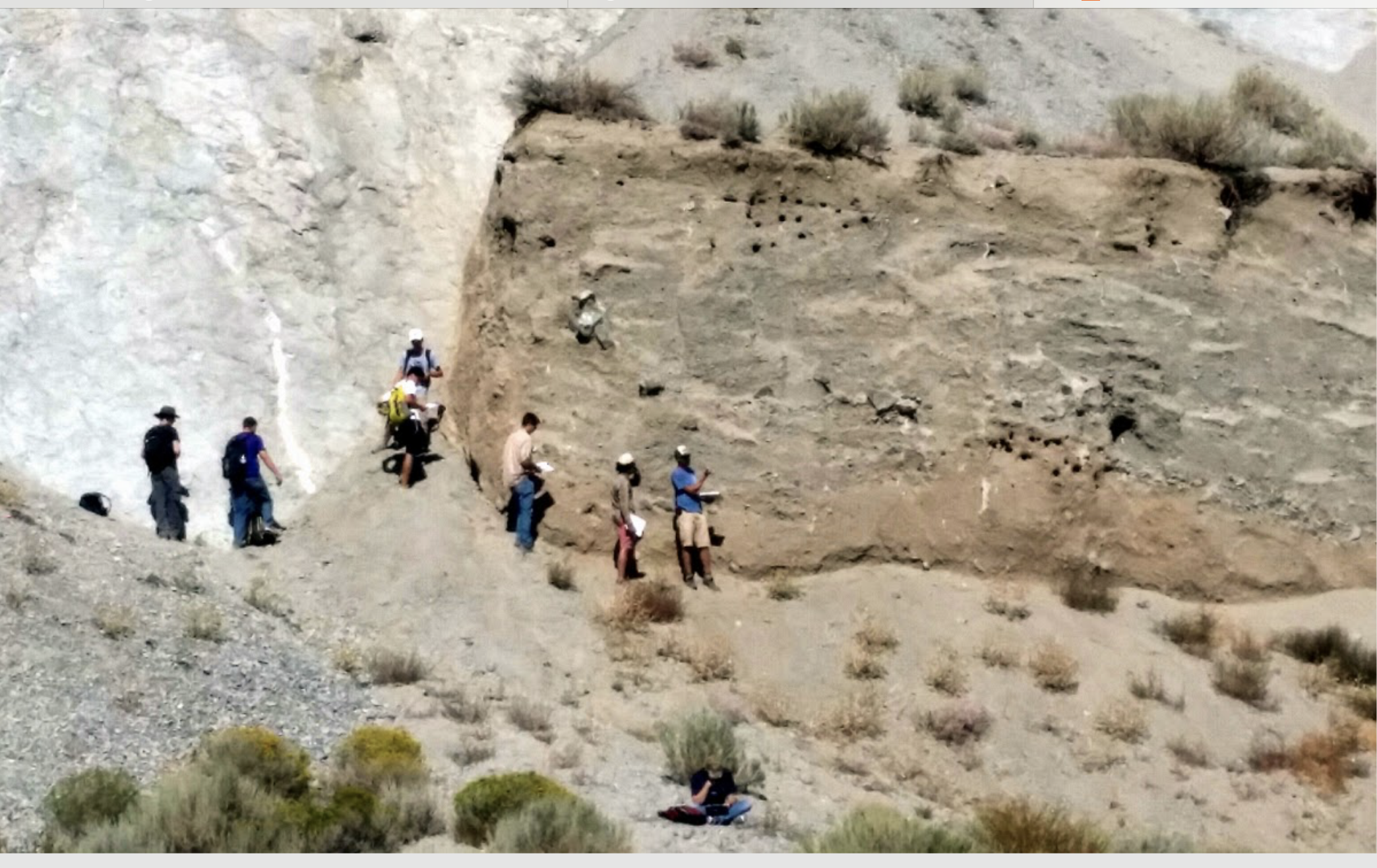Snowflakes melt in the desert
/whose fault is this?
…. I am sorry to report that according to The College Fix, not only is geology non-inclusive, but it is also an extension of the colonialist mindset.
This time around, the reason for the griping, grumbling, whining, carping, kvetching, and keening is the concept of geology field camps. Specifically:
The argument is that field camps are a racist, ableist, sexist role-playing exercise driven by toxic masculinity and centered around reliving Manifest Destiny, “subjugating the native populations,” and the “conquest of the west by the white man,” said Sadredin “Dean” Moosavi, a geologist at the Rochester Community and Technical College in Minnesota.
…. Moosavi is just as exasperated with this latest tantrum as anyone else. He told the Fix that the argument is that field camps are "dominated by toxic masculinity because all the young, white males in the program, they all want to grow up to be Indiana Jones." He wryly added that Indiana Jones was an archeologist, not a geologist, although, after being ravaged by Disney, I'm not even sure Dr. Jones is still a man. We may have to wait for the release of "Indiana Jones and the Quest for the Lost Pronouns." And to be honest, geology is not exactly a swashbuckling field unless a geologist is trapped by a volcano or in a cave.
The other argument is that much of the work in geological research takes place in the West. Ah! THERE it is! THAT'S how you tie it in with Manifest Destiny! Westward expansion, and... stuff. As Shakespeare said, "The games afoot!"
Moosavi points out that much of the work takes place in the West because geological features are easier to see. And he's right. I've lived in the West for more than 30 years. I've traveled all over the West for work and leisure. The West is a geologist's wet dream. That goes double for paleontologists.
Yet another complaint is that field geology tends to favor the young and physically fit. The issue here is that women, out-of-shape people, short people, or anyone who is not a buff, single white male is left out of the loop. This includes people who don't have the money to attend a camp, need to care for children, may be accustomed to city life, or do not feel comfortable around a bunch of young guys. Moosavi notes that if one changes a field camp to suit everyone, then one is no longer engaged in geology. The camp becomes just another exercise in equity, which is available on every college campus.
An earlier report in The College Fix on geology classes is just as funny. Or scary, because the tender students’ pitiful whining is being heard, and will surely transform university curriculums into soft, fuzzy saferoom studies where rocks are brought inside for study, but only after they have been properly screened for racist and misogynist feelings.
“… BIPOC students, especially female and non-binary students, were more likely to report struggles with mental health and feelings of inadequacy.”
Some students, Rowan stated, lamented being the only one with their unique intersection of identities in their department or not being able to see themselves represented among faculty.
For illustration, Rowan shared a quote from one student who wrote, “I’ve never seen anyone like me in the geosciences which is sometimes disheartening. I have so far had one BIPOC/API teacher who was queer, and one white queer teacher. But I have never had a teacher with a mix like mine and is also transgender and queer like me.”
Those from indigenous backgrounds were reported by Rowan to have been upset by the lack of indigenous knowledge and place names incorporated into courses, as well as the clinical presentation of such topics when they did come up.
Although not limited to BIPOC students, Rowan also detailed how some students with physical limitations complained that geological field sites at which field camps or courses were held were not always handicap accessible or had physical demands that not all students could easily meet.
Throughout her thesis, Rowan also enumerated numerous other frustrations and complaints by students about their programs that did not appear to be explicitly related to race, gender, or physical ability, such as the affordability of field experiences, burnout, dissatisfaction with course offerings or course content, and professors not respecting them enough for the knowledge they didn’t have.
For example, one geoscience student quoted by Rowan wrote, “Courses are too rock heavy.” Another she quoted wrote, “Sometimes I feel like my professors don’t respect me for my knowledge and I am a bit self-conscious of how much geoscience knowledge I lack.”
…. Rowan also suggested geoscience departments “adapt culturally responsive pedagogies to all courses to enable BIPOC students to better identify with the field,” adding, “Geoscience departments should consider the integration of Indigenous knowledge, place-based education, and respect and acknowledgement of the Indigenous peoples whose land they occupy and study on.”
Additionally Rowan wrote field experiences need to be adapted as well to make them more equitable and accessible, as factors such as cost, physical requirements and “backcountry” settings may serve as “barriers to students” that cannot afford them, meet the physical demands of working in a remote rural setting, or find themselves uncomfortable being in such settings.


